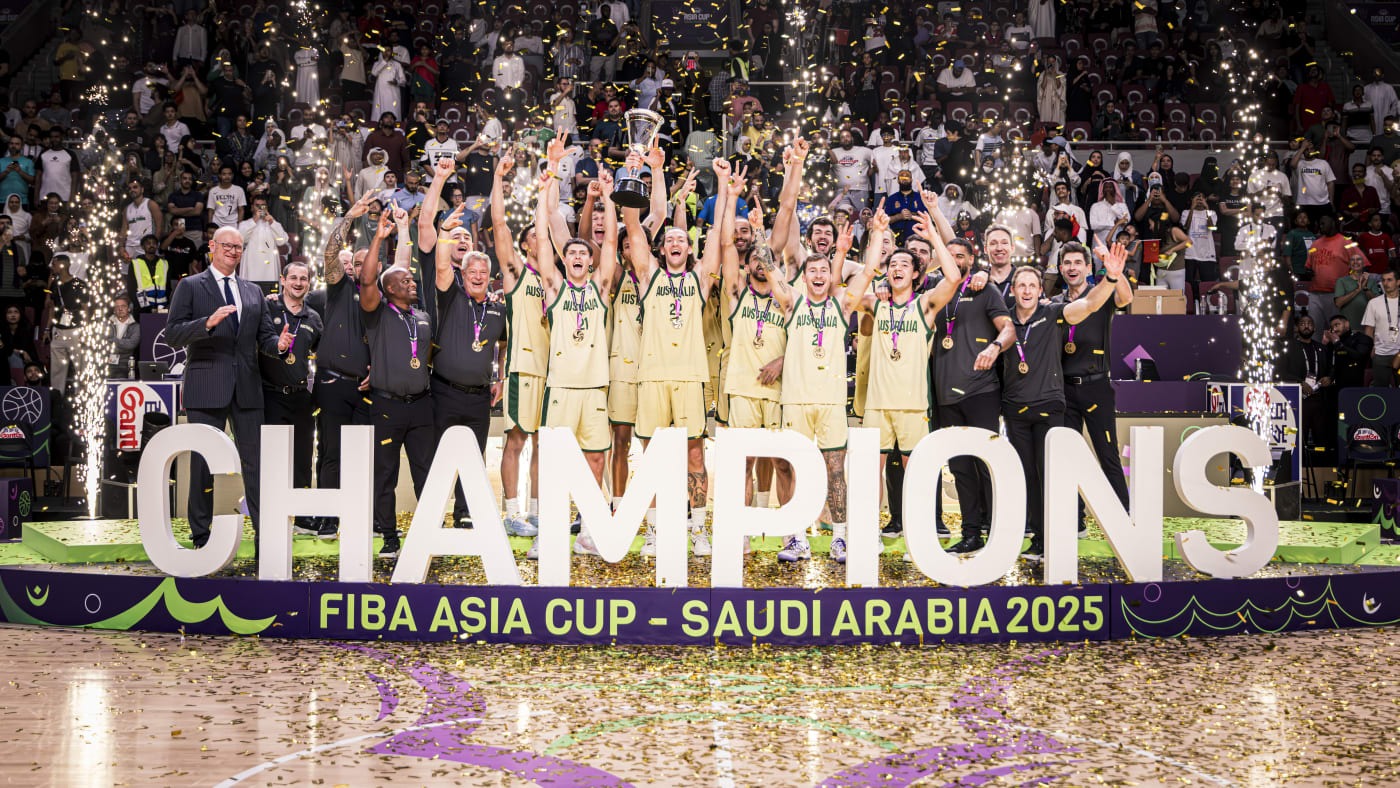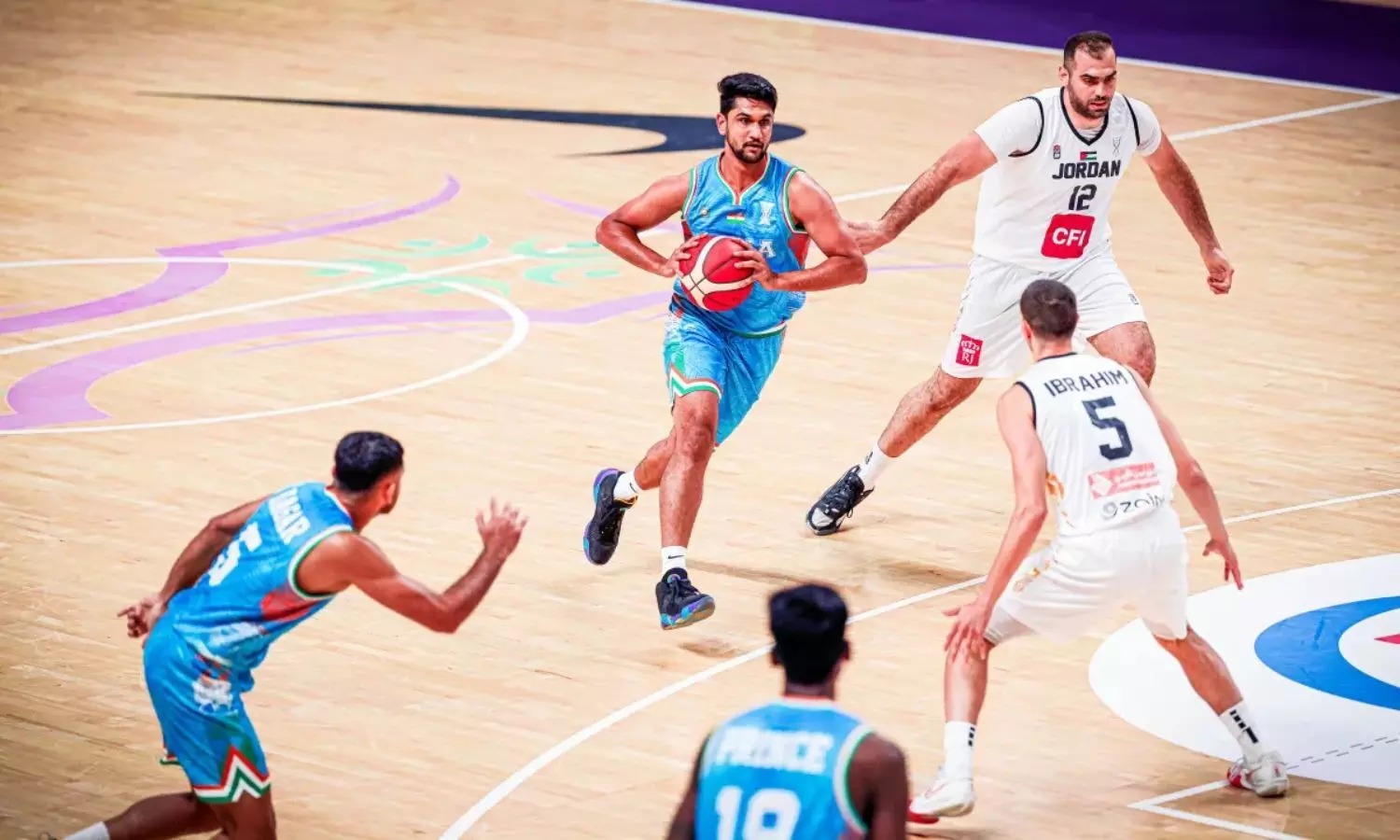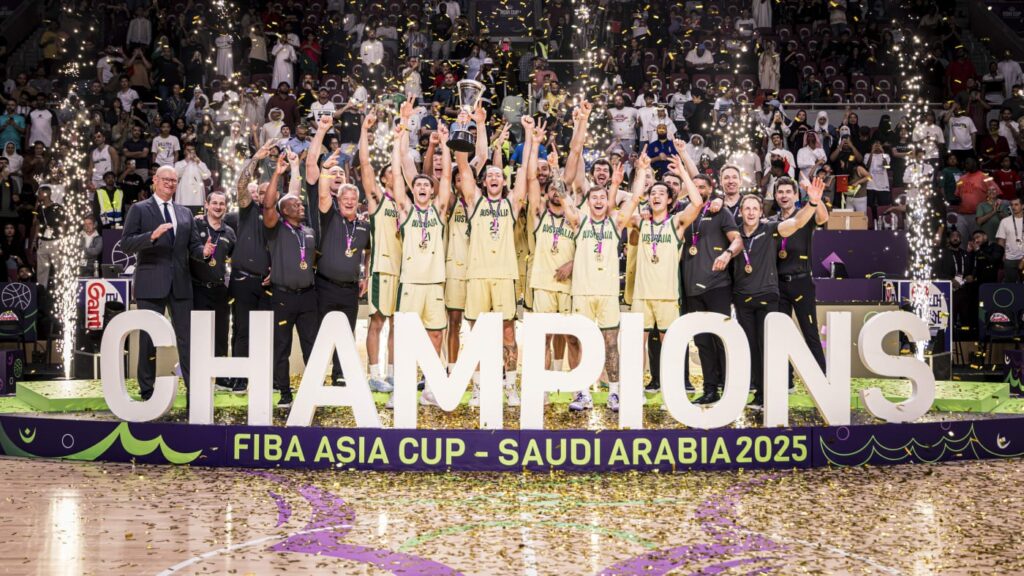
Every so often, a tournament does more than crown a champion. It tells you where a sport is headed, who’s writing the new scripts, and which nations are ready to step out of the shadows. The FIBA Asia Cup 2025, staged in Jeddah from August 5 to 17, was one such moment. For two weeks, the Red Sea city became basketball’s beating heart in Asia. The energy, the drama, the sheer competitiveness…it all pointed to one undeniable truth: the balance of power in Asian basketball is shifting, and fast.
The headline story was, of course, Australia completing a three-peat. The Boomers beat China 90–89 in a nerve-shredding final, sealing their third straight Asia Cup title. This wasn’t dominance from start to finish – it was survival at the sharpest end of elite competition. And that’s precisely what makes this team special.
What Australia have brought to the Asia Cup since joining FIBA Asia in 2017 is a standard of professionalism and composure under pressure. They no longer blow teams away; instead, they grind, adjust, and then deliver the killer punch in crunch time. It’s the sort of consistency that other Asian powerhouses are still aspiring to.
For China, the heartbreak was palpable. A one-point loss in the final is the kind of result that can haunt a program for years. Yet, paradoxically, it may have been the best thing to happen to Chinese basketball in a decade.Gone were the disjointed, disillusioned sides that flattered to deceive. This was a team that matched Australia step for step, showed depth in its roster, and looked like it belonged back on the big stage. For fans starved of a basketball renaissance, Jeddah offered hope that China is finally closing the gap.
If there was one storyline that elevated the Asia Cup beyond the usual suspects, it was Saudi Arabia’s run as hosts. This was not the Saudi team of old, content to make up the numbers. An emphatic 84–59 win over India and a gutsy fight against Jordan showed a side playing with belief. Led by Mohammed Alsuwailem and Muhammad-Ali Abdur-Rahkman, they reached the knockout phase with momentum. And while their campaign ended in heartbreak…a 95–88 overtime loss to the Philippines – the impression they left was clear: Saudi basketball has arrived.
Also Read: PKL at a Crossroads: Can Innovation Spark the Next Big Leap?

For a Kingdom aggressively expanding its sporting portfolio, this was validation. Not just in terms of slick organisation and enthusiastic crowds, but on-court competitiveness. Iran underlined their staying power with a bronze-medal win over New Zealand. For a team that has been a mainstay of Asian basketball’s top tier, this podium finish was a reminder that they won’t quietly fade away. Meanwhile, the Philippines, South Korea, and Japan all showed flashes that suggest the middle pack is closing in. The days of predictable semifinals are long gone – every game now feels like a coin toss.
What made this Asia Cup memorable wasn’t just the results. It was the margin of victory in the final (a single point), the hosts’ improbable surge, and the sense that basketball in Asia is entering a new era of unpredictability. Australia may still be kings, but the throne doesn’t look as unshakeable as before. China is resurgent, Iran is steady, and new markets like Saudi Arabia are starting to punch above their historical weight. That cocktail is exactly what FIBA wanted when it expanded the Asia Cup’s footprint.
Speaking on his experience as Tournament Announcer, Steve Moore said “Fiba Asia Cup ’25 is such a vibe. It was greatly organized, teams are top notch and I enjoyed my work as Tournament Announcer seeing the games up close from the best seat in the house. I would love to go back to Jeddah and do it again!”
Jeddah 2025 wasn’t just another tournament—it was a declaration of intent. Asia is no longer just a cricket and football continent. Basketball is growing, its narratives are deepening, and its heroes are multiplying. For Saudi Arabia, the Asia Cup was a launchpad. For China, it was a resurrection. For Australia, it was vindication. And for fans, it was a reminder that nothing stirs the soul quite like a one-point game with everything on the line.The Asia Cup came, it conquered, and it left us hungry for more.
Follow Revsportz for latest sports news





